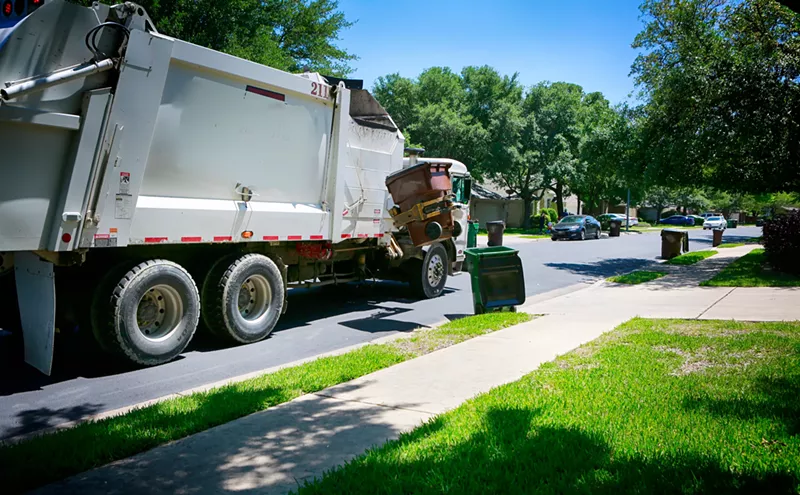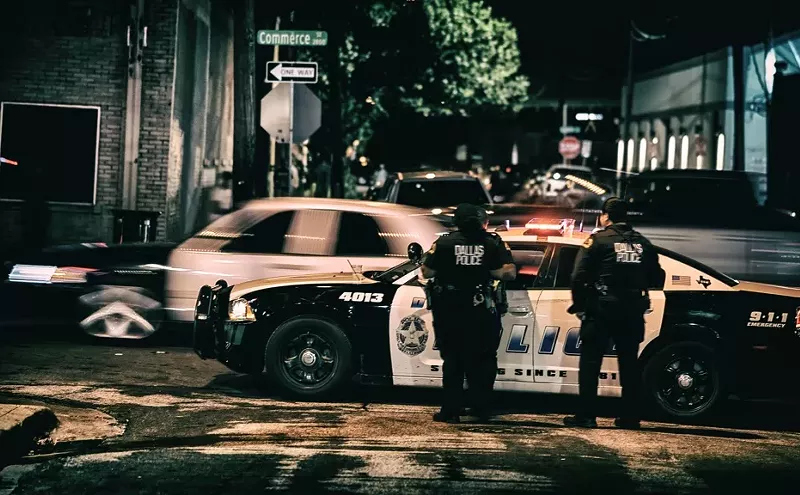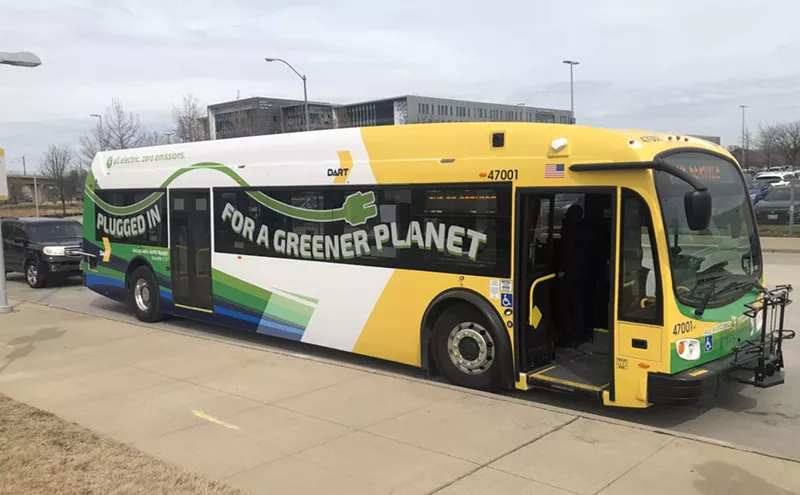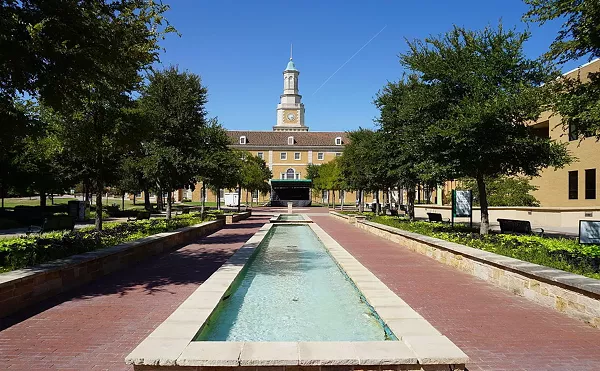Generally speaking, zoos are in the business of selling tickets. If they can help conserve and protect the animals they display along the way, that's nice too, but to exist, zoos need to put on a show, and that means they need animals to fill what is, let's be honest, a wildlife jail. But a joint marketing campaign orchestrated by the Dallas Zoo, two other American zoos and the African monarchy of Swaziland claims that 18 elephants living in Africa would actually be better off in the zoos than in their native habitat.
Wildlife advocacy groups and researchers have for years argued that elephants don't belong in zoos, even nicer zoos that offer elephants more space to roam. "These are incredibly intelligent, incredibly large and incredibly mobile animals," says Tanya Sanerib, a senior attorney at the Center for Biological Diversity. Over the past decade, even members of the American Zoo and Aquarium Association, the big zoo trade group, have come to to the conclusion that elephants need more room than any zoos allow. The zoos in Philadelphia, Detroit, Chicago, San Francisco and the Bronx began phasing out their elephant exhibits years ago.
The zoos of Omaha, Wichita and our own Dallas Zoo in Oak Cliff, the largest zoo in Texas, meanwhile, are trying to get their hands on more elephants. "We went through all of that in 2008 or 2009, whether our zoo should be able to manage elephants or not, and we felt because of the space that we had and also the philosophy of what we are moving to [of mixing different species together] ... we feel like we're cutting edge and we are definitely a viable option for these elephants," says Dallas Zoo CEO Greg Hudson.
Last November, the zoos applied for a permit to the U.S. Fish & Wildlife Service to import 18 elephants kept on a reserve in Swaziland in exchange for hundreds of thousands of dollars that the zoos say will go to preserving Swaziland's rhino populations. The zoos already have the blessing of Swaziland's Ted Reilly, who both owns the reserves where the elephants live and also is responsible for issuing the local exporting permits. Their application with U.S. officials has been pending for nearly a year, but the comment period is only 30 days and closes on Monday. Conservation groups say Fish & Wildlife didn't alert them to the application until October.
The American zoos and the Swaziland officials are defending their application through a sleek, joint online-marketing campaign called Room for Rhinos. The site offers many reasons why the elephants need to leave Africa. It describes the elephants as destructive creatures, and says that Swaziland is suffering a drought that makes caring for the elephants unsustainable. "Elephants are transforming the [Swaziland] park in a negative way," Room for Rhinos says. And there is no other park in Africa where the African elephants could possibly go, the zoos claim. "Relocating the elephants elsewhere in the region is unrealistic due to issues related to excessive poaching, loss of habitat and elephant-human conflicts," the zoos and the Swaziland government say in a joint press release.
That's not actually true, says U.C. Berkeley wildlife Professor Wayne M. Getz. "This statement is a sweeping generalization," he says in an email. "There are many unsafe places in Africa for sure, but there are also safe places, such as parts of Botswana and the developing wildlife tourist areas of the Eastern Cape Region of South Africa.
"It often boils down to a question of cost and who is willing to pay. It seems to me the American zoos are willing to pay to import elephants to North America. Are they willing to pay to move the elephants somewhere else?"
No, the zoos aren't into the idea of paying to move the elephants to somewhere that isn't a zoo. "...This project is important because it also will let U.S. zoos — who are large contributors to conservation projects on the ground in Africa — continue teaching and inspiring future generations of Americans," Dallas Zoo spokesperson Laurie Holloway says in an email that subtly digs at conservation groups. "These generations may find an answer to the issue that’s eluded these elephant groups so far, as nearly 100 elephants are being brutally killed every single day."
As for the claims that the elephants are wreaking havoc on Swaziland, wildlife experts say that elephants really aren't that destructive in their natural habitat. They say the problem with the Swaziland reserves is that the elephants are enclosed in an area that at 15,000 acres is still too small and just a fraction of the total reserve space available in Swaziland, leading activists to wonder whether the Swaziland government is raising and containing the elephants for the sole purpose of selling them to American zoos. “They haven’t even attempted to find more land or take down some of their fences, which would give the elephants access to much larger areas,” Dr. Marion Garai, the chair of the Elephant Specialist Advisory Group in South Africa, told an African news site.
Hudson acknowledges that the reserve in Swaziland has more space for the elephants than the 7-acre "Savannah" at the Dallas zoo where the new elephants would go. "Obviously they're bigger than our zoo ... but to me it's not just about space," he says.
"We feel like we're a viable option, if there were other options out there, really that's up to Swaziland to pick the best one that they can and what they feel most comfortable with," Hudson says. "When it comes to those other options, that's what Swaziland has to look at and decide. We feel like we can not only provide these great homes, but also we can help them with their long-term conservation program, and I think that says a lot for what we're willing to do."
On the other hand, this is the same Swaziland government that sold 11 elephants from the same reserves to a different group of North American zoos in 2003, also over conservationist groups' objections. The application also follows a 2012 Seattle Times investigation that found that the "decades-long effort by zoos to preserve and protect elephants is failing," due to "mounting evidence that elephants do not thrive in captivity."
"We think the message needs to be clear that African elephants should stay in the wild in Africa," says Sanerib, the attorney from the Center for Biological Diversity.

Audio By Carbonatix
[
{
"name": "GPT - Billboard - Slot Inline - Content - Labeled - No Desktop",
"component": "21721571",
"insertPoint": "2",
"requiredCountToDisplay": "2"
},{
"name": "STN Player - Float - Mobile Only ",
"component": "21861991",
"insertPoint": "2",
"requiredCountToDisplay": "2"
},{
"name": "Editor Picks",
"component": "17105533",
"insertPoint": "4",
"requiredCountToDisplay": "1"
},{
"name": "Inline Links",
"component": "18349797",
"insertPoint": "8th",
"startingPoint": 8,
"requiredCountToDisplay": "7",
"maxInsertions": 25
},{
"name": "GPT - 2x Rectangles Desktop, Tower on Mobile - Labeled",
"component": "22608066",
"insertPoint": "8th",
"startingPoint": 8,
"requiredCountToDisplay": "7",
"maxInsertions": 25
},{
"name": "Inline Links",
"component": "18349797",
"insertPoint": "8th",
"startingPoint": 12,
"requiredCountToDisplay": "11",
"maxInsertions": 25
},{
"name": "GPT - Leaderboard to Tower - Slot Auto-select - Labeled",
"component": "17357520",
"insertPoint": "8th",
"startingPoint": 12,
"requiredCountToDisplay": "11",
"maxInsertions": 25
}
]











